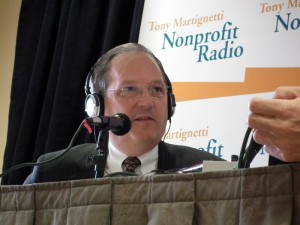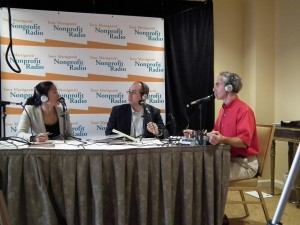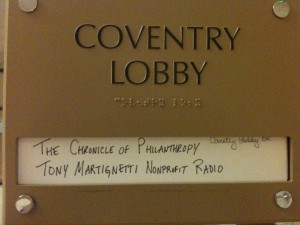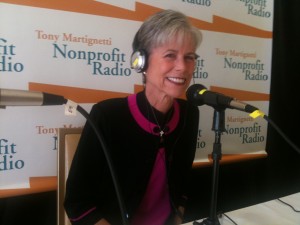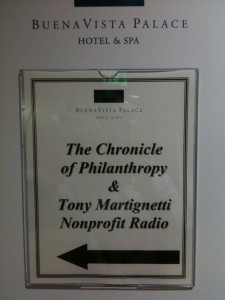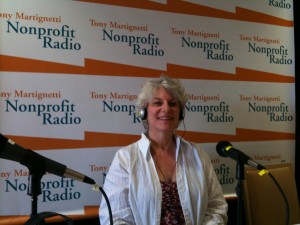Anne’s seminar at the National Conference on Philanthropic Planning was “Motivating Your Donor Base: The Science (and Art) of Planned Giving Marketing.” That’s a broad topic and we stuck mostly to direct mail marketing.
Anne is Deputy Director of Gift Planning for Harvard College and the Graduate School of Arts and Sciences. She’s got 17 years in fundraising, the last 12 in planned gift work.
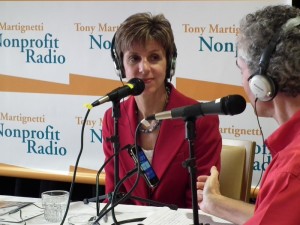
We talked a good bit about properly segmenting your direct mail appeals: deciding who to mail to and for what types of gifts. Anne admonishes that if you’re assessing donor loyalty and commitment, say, those who have given 8 gifts in the past 10 years, ignore gift size. Ten and twenty-five dollar gifts matter. Those are donors who think about you year after year, and they’re strong prospects for a planned gift, assuming they’re the right age for the gift vehicle you’re promoting.
Her message on messaging: keep it simple. One message per mailing (or email). Don’t promote bequests and gift annuities in the same package.
Anne has gotten away from letters. She feels their outdated. The pieces we were talking about are self-mailer, three-fold cards, with an integrated reply device. When Anne does newsletters, she prefers envelopes that drop-out or are stapled-in-the-middle. Harvard has concluded that cut-off reply pieces reduce response rates.
Anne’s program was yesterday, but you can hear our discussion on Tony Martignetti Nonprofit Radio. Go to the Facebook page for alerts and you’ll know when it’ll broadcast.
P.S. I love the color of her suit. And not because it’s close to the color of my shirt.
